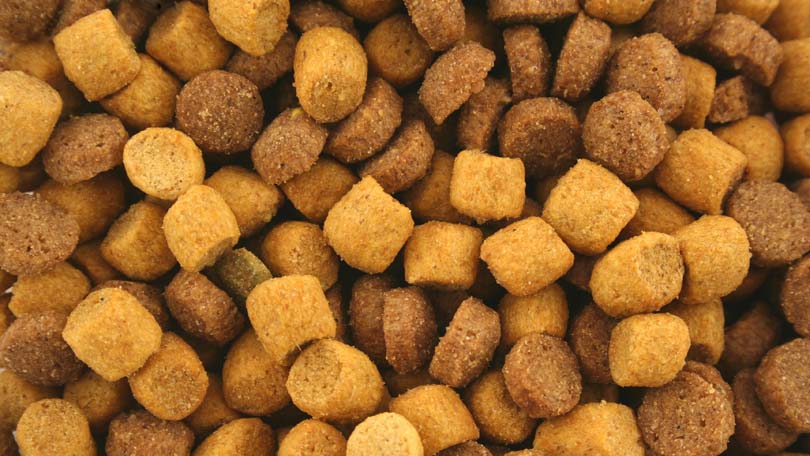
Watch a documentary on wolves and it is easy to see that dogs instinctually protect their food. The wolves growl and snap at each other, make a fuss over the tastiest morsels and put their back to the pack if they tear off a chunk.
Watch a litter of puppies eat and you will see much the same thing. Even as young as a few hours old, bigger puppies will push the weaker pups off nipples and the smaller pup will vocalize their upset. As they grow, this behavior continues to escalate and growling and snapping at each other is commonplace.
Now you bring your puppy home and they growl at you when you come near their food dish. This is unacceptable and can even become dangerous as they grow or if there are children in the house. So how do you stop this behavior?
The first thing to remember is that dogs learn faster with positive, reward based training. In the case of guarding his food dish, scolding him does not help as the growling only becomes more insistent and the guarding behavior worsens. He sees the scolding as you being upset because he is not sharing his food with you, intensifying his need to guard it more.
For all dogs and puppies, whether they display guarding behavior or not, never take the food dish away without adding something yummy to the meal. They need to see that by you removing the dish, good things are going to happen!
To show him that you are not interested in his food, you are going to start by getting him used to you being near him when he eats and handling his dish. Grab a handful of something yummy like bits of cheese or wieners. In cases of mild guarding behavior, using one hand to restrain him for a moment while you use the other hand to add a few pieces of the cheese or wiener to his dish shows him that you are not taking food away from him. If anything, you are adding better tasting bits to the dish and that is a good for him.
After a few times, he will no longer fuss when you restrain him. At this point, start lifting his dish a few inches off the ground before adding the bits of cheese. When you put it back down in front of him, tell him ‘good boy’, let him take a few bites and do it again but this time a bit higher. Eventually he will not object to you removing his dish because good things always happen when you do that. If you have children, have them do it as well.
With dogs or puppies that actually snap at your hand when you get near them, you need to try a different approach. At meal times, take his bowl and place it on the table, out of his reach but within his sight. Sit comfortably at the table and have him sit in front of you. Now feed him the kibble piece by piece. If he takes it gently, tell him ‘good gentle’ and if he bites you, even by accident, make a fist around the kibble so he cannot take it and say ‘gentle’ in a warning voice. When he mellows and attempts to take it gently, give it to him. You will need to do this for a week or two until he understands that you are not going to steal his food. Once he is gentle and sees you as the giver of the food, try putting half the amount of kibble into his dish and place it on the floor in front of you. Now try to add a few more pieces while he eats. He should no longer snap at you and you can begin to add more kibble as well as bits of cheese to his dish as he eats. Soon you will be able to pick his dish up and he will not fuss.
Continue this for a few more weeks before allowing your children to do the same thing. You may need to start at the beginning with your children hand feeding him his kibble a few meals before they are able to interfere with his dish. How he reacts is dependent on where he feels they are in the pecking order. This feeding technique soon passively teaches him that he is subservient to the children and that they too must be respected.
This training method also works with toys, sticks and chews. If he is chewing on something he is not allowed like a sock, tell him ‘no’, take it out of his mouth and if he gives it to you without a fuss, reward him by giving him a treat or one of his toys. With a little patience, you will have a perfectly mannered young dog in the house who will allow anyone or anything to come near his dish and his toys.
